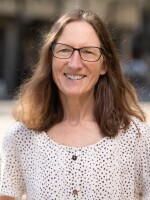One hundred eighteen college students spent last weekend holed up in the Lillis Business Complex, intensively writing computer code and strategizing. They were participants in the first gaming “hack-a-thon” at the University of Oregon.
The atmosphere in Lillis is charged, but cooperative. People are focused, with the jazzed energy that comes from little sleep and big ambitions. A hackathon, or hack marathon, poses this challenge: What can a small group of motivated students accomplish, with the right resources, in a short time? The “Quack Hack” at U of O asked teams to create a game prototype in just 36 hours.
Faculty organizer Kate Harmon says they chose the theme because of Eugene's thriving independent game studios:
Harmon: “We want to use this event to build upon a university-industry partnership, and really help connect our students to the industry to help them gain future employment and future roles there.”
Competitors arrived Friday evening, checked in and formed teams. Most were U of O students, but six states and 14 universities were represented. All that night and throughout Saturday, most classrooms and nooks in the Lillis Complex were filled with clusters of people, hard at work.

Steelhammer: “The best part for me about doing weekends like this is always that you start with nothing, and then you build it from the ground up.”
Molly Steelhammer is part of one of the few teams making a physical board game.
Steelhammer: “Its always impressive to see what you can actually do. I think all the other stuff is just extra, like free food, cool speakers, cool tech.”
Her team is using a 3D printer to create the playing pieces. Other groups chose to experiment with some of the cutting-edge tools provided, including Oculus Rift virtual reality headsets and Myos -- arm bands that sense various gestures. Most teams had setbacks working with new equipment and software. Eric Thomas came from Portland State University:

Thomas: “You always run into problems. The Hackathon is how do you get over those problems. You can look at YouTube videos, forums, things like that. But you're always going to find those bugs. You're going to have to solve them, and he's doing that right now. How's it going over there?”
“We just got it up and running!”
Thomas is part of a team of five people all from different schools, all with different majors. They're tackling an ambitious concept, combining a physical board with a video game component. If they can get it to work, a kicker will topple a plastic figure when the player defeats it on screen.
Sunday morning, all of the teams showed off what they'd created. Judges from local companies and the U of O asked questions and took notes. Most groups had made some changes in scope so they could finish by 9 a.m. Liz Olsen's team designed an immersive Tetris game, using two Myos and a 3D headset. The arm bands proved to be difficult to program:
Olsen: “So we ended up using one less of the hardware sensory than we were going to, just because it was kind of too glitchy so we really had to change how we were measuring the gestures.”

The Tetris game worked, and players were having fun stacking falling pieces using their arm motions. Most teams finished with a playable product, ranging from shooting games to strategy to mazes.
Finally, the judge's top teams presented their games on stage. The groups were ranked and winners were declared, but there was not a lot of fanfare. Mostly, everyone in the room took home the experience, new friendships, and new skills. About half of the participants said they'd like to pursue a career in the gaming industry.
The U of O's Kate Harmon says she plans for the hackathon to be an annual event.






